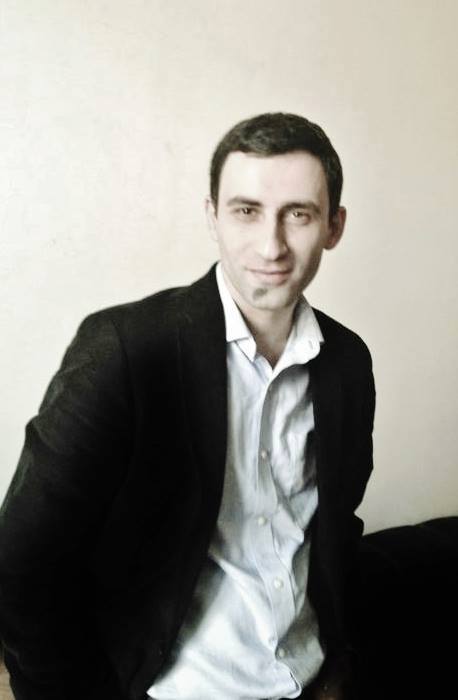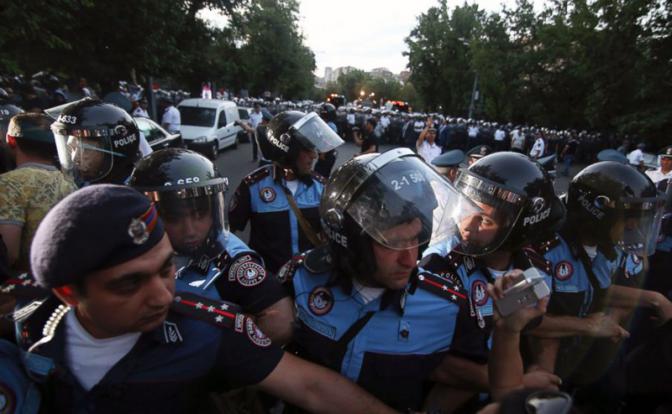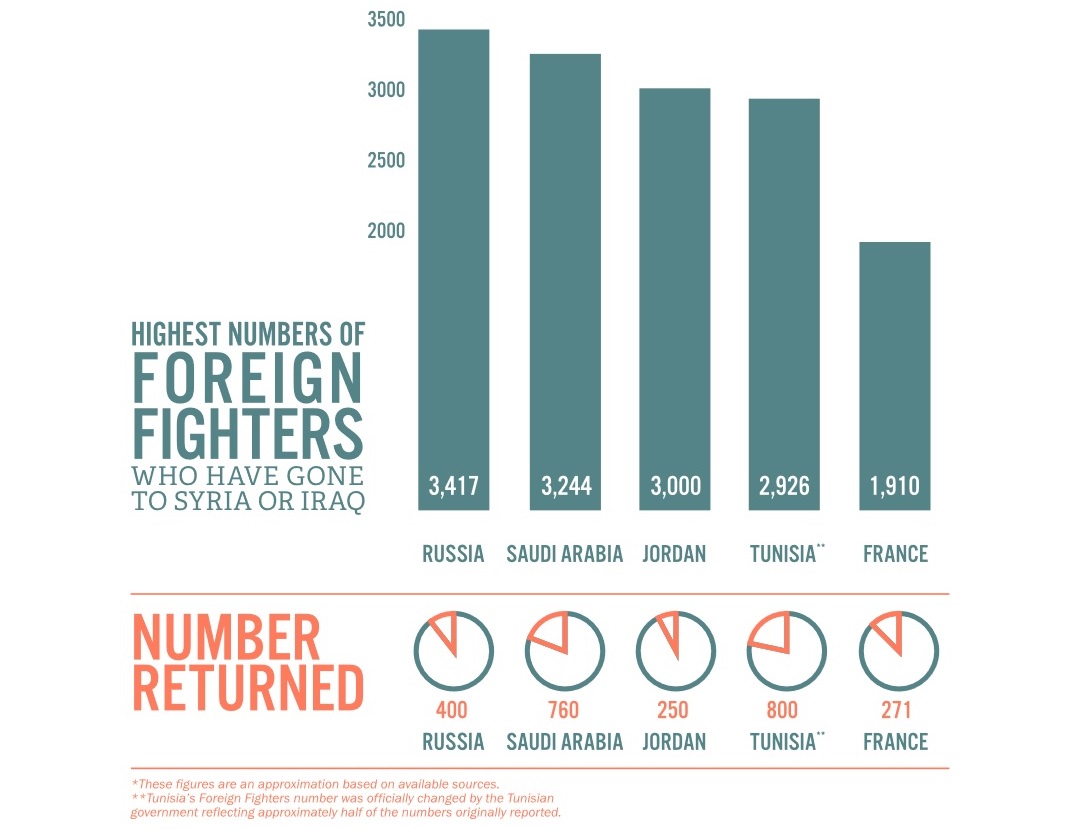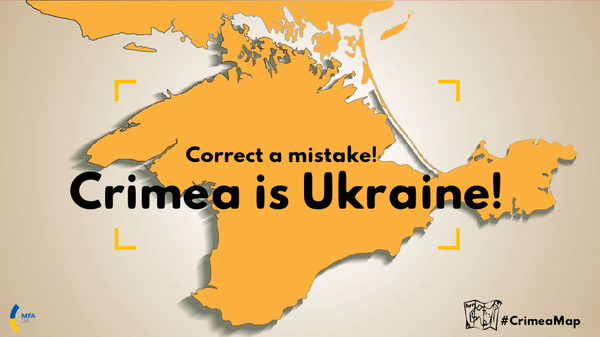In late April 2018, protests engulfed Armenia. People took to the streets, protesting against the existing regime and Prime Minister Serzh Sargsyan’s neverending rule.
As a result of constitutional changes in 2015, the powers of prime minister in Armenia were expanded. Sargsyan was nominated for the position, having served as president for two terms. This caused outrage among the Armenians.
Sargsyan left the position under the pressure of the streets. But demonstrations continued until protest movement leader Nikol Pashinyan was elected as prime minister on May 8. Now he has to form a team and a program. Euromaidan Press talked to five Armenians to understand the situation in the country.

What was the political situation in Armenia like before the revolution?
Davit Alaverdyan: A huge amount of capital in Armenia was and still is concentrated in the hands of the oligarchs. With the help of the leaders of the country, it became possible for key products as flour or sugar to be imported to Armenia only by some particular people. And that made them very rich. Almost all the areas of the economy were divided between them. And those in power patronized them.
At the end of 2017, Armenia changed its form of government to a parliamentary republic and there was a big probability that that President Serzh Sargsyan will leave the power to his younger colleagues after ten years of rule. However, it turned out this was not in his plans. So he tried to switch the president’s position for prime minister. But the protests which started as small and then reached the capital Yerevan forced him to resign. The government and the ruling party tried to appoint a new prime minister.
Despite this, on the wave of success, the leader of the opposition Nikol Pashinyan was elected as prime minister. After that, the entire government resigned and he has to form a new one in two weeks, and then in 20 days to form his program. He said that a new election code with the help of which early parliamentary elections will be held is among the first tasks.
It’s important to notice that Sargsyan’s Republican Party still holds a majority. It will be able to block vital initiatives of the new government. Overall, most oligarchs belong to the Republican Party. President Sargsyan used to be the largest oligarch without the permission of whom nobody could have a large business. He left the position of the president and prime minister, but still remains the leader of the Republican Party. It means so far he has not disappeared from the political field.

What were the main reasons for people to take to the streets?
Karine Asatryan: There are two ways of expressing dissatisfaction with authorities. One is to go to the streets, and the other one is to emigrate. Over the years, Armenians have expressed their dissatisfaction through their “feet” – by emigration. And during the protests, dissatisfaction was expressed by “feet” as well. It’s not the first time in Armenia that people go out to the street and complain about fraud, injustice, etc. You can’t say that patience had run out this time, as opposed to the previous times. It’s just that this time young people who want quick solutions to the problems they had raised went to the streets. They wanted to change the government, and they were able to achieve it.
What were the demands of the protesters?
Karine Asatryan: At first, there was one demand: to make Serzh Sargsyan leave. In fact, he broke his promise to not rule the country for the third time. Armenians did not want a leader who did not stick to his promises. So under public pressure, he resigned.

Why had the protests continued after Sargsyan resigned?
Areg Kochinyan: After he left office, his Republican Party was still in the government. And the protests were not about Sargsyan. They were against the Armenia’s regime. If protests would have stopped after he left, nothing would change in Armenia because as I said the Republican Party was – and is – still in power. Sargsyan had remained its head, meaning he could have governed the country while staying in the shadow without holding any position. Now because we have another prime minister it is much harder for Sargsyan to rule the country from the shadow, because the government will not be formed by his party.
Why didn’t the protests cross the red line, remaining peaceful?
Areg Kochinyan: There are two reasons for that. First is the development of the civil society in Armenia which is really high. The NGOs and active citizens had a crucial role in not allowing the peaceful protests to turn violent. Second, both the government and the population of Armenia very well remember the event that happened on 1 March 2008, when 10 people were killed and more than 100 were injured [in central Yerevan during the protests against the presidential election results – Ed]. Nobody in Armenia wanted this to happen again.

Who is Nikol Pashinyan?
Karine Harutyunyan: I personally know him for about 10 years. He is known in Armenia as a rebel and a fighter for justice. His rebellious temper was well-known from his student life. Because of it, he was kicked out of the university. Having a great academic performance, he did not receive a diploma. During the last days, there were many discussions over the fact that a person without a higher degree aims to become prime minister. No protest in Armenia went without his participation. He was standing together with [first Armenian President who led the protests in 2008 – Ed] Levon Ter-Petrosyan. He was there when attempts were made to close our broadcasting company. That time he was an editor of the ArmTimes and was writing about it. He was there during the Electric Yerevan protests, when there were public transport price hikes.

And the last he organized protest ended up with the support of people and with the victory of the people. I do not want to say that it’s Nico who won. It were the people. But they were led by him.
Why had the first attempt to elect Pashinyan as prime minister failed?
Karine Harutyunian: According to the constitution, the prime minister is elected by parliament by an ordinary majority. Now there are 105 MPs in the Parliament. To become prime minister, Pashinyan had to gain 53 votes. The biggest fraction – the Republican Party – has over 50% seats in the parliament.
Despite the fact that two big parties agreed to form a coalition and support Pashinyan, he couldn’t get enough voices. Why? During these 20 years, politics and business became tightly interconnected. Oligarchs are either members of the ruling party or became them to keep their capital. Now, this capital still belongs to the Republican Party.
Apart from this during the extraordinary parliamentary meeting, the Republicans tried to ask Pashinyan questions to show his incompetence as a manager. He gave a worthy answer, but still, the Republicans said that unanimously they are not going to vote for him. Despite the fact that Pashinyan’s answers did not satisfy the Republicans, it satisfied the people. They had stood for 9 hours under the scorching sun on the square. There were monitors broadcasting his answers. People were chanting that he is their prime minister.
Why does the Republican Party hold on to its powers so much? Armenia is a post-Soviet country with high level of corruption. To be able to do something, you should become a member of the Republican Party. And the oligarchs have privileges only because they are also members of this party. It was adopting laws according to the needs of the oligarchs or republicans.

Who are the people who can form Pashinyan’s team? Which political forces do they represent?
Armen Mazmanyan: As of now, Pashinyan has no strong team of his own that could run the country. Meanwhile, the promise has already been that the transitional government will feature a team of national unity. On the other hand, there has already been an announcement by the Republican Party that the transitional government won’t have any republicans. It is most likely that we will see an experimental team composed of younger experts and activists, possibly with some diaspora representation. It remains to be seen whether Pashinyan brings any of his immediate comrades to the government. This will also be a test on whether he will aim to find professionals who can sustain the country’s governance in the interim, or prefer to surround himself with loyal “friends” who have little or no exposure to governance.
What should be the first reforms?
Davit Alaverdyan: First of all, the prime minister has to form a team. Second, to form a program. Third, it should start from business, the law system. Our judicial system is very corrupt. If reforms more or less touched the other areas, the judiciary remained almost the same as it was in Soviet times. Still, it is fully dependent on the executive power.
What are the main challenges for the reforms?
Karine Harutyunian: The first challenge of the temporary government is the majority of the Republican Party. They often refer to their ideology. In fact, their only ideology is financial capital. But also they have people’s capital. They gained it during in power for such a long time.
What are the main risks and challenges of the early parliamentary elections in Armenia?
Armen Mazmanyan: The main challenges are political. Whether the former ruling party is disintegrating is yet to be seen, but it is already a fact that it is now suffering from a very strong blow to their reputation, and it will be very hard for it to regain any kind of popular support before the elections. On the other hand, there is no other strongly consolidated party, and the party system itself lacks consolidation. In many respects, then, these elections will face a parallel party building process. Obviously, the new Prime Minister’s party will have a huge advantage in terms of popular support and is so far the most likely winner. But it is unlikely that it manages to come up as a decently consolidated entity, with a coherent party program and a team. It is more likely that this player will in the future face yet some stages of disintegration and splits, and it can potentially impact on Pashinyan’s chance for retaining power in long term perspective, and indeed for stability of the party system and the country itself. Technically, elections will probably still face some challenges in terms of integrity. Some problems of our elections will likely prove to be endemic. But overall, given this protest’s enormous civic nature, there is much hope that the most obvious election irregularities of political nature, and most topically, the abuse of public resource and vote buying, will be under strong public control. There is a unique chance at holding the best elections since Armenia’s independence.
How can the geopolitical situation in Armenia be changed?
Davit Alaverdyan: I hope very much, and Pashinyan repeated it several times, that the geopolitical situation will not be changed dramatically in the near future. He stated that he will develop relationships with Russia, with the EU, the US, China, and Iran. On May 14, he will attend the summit of the Eurasian Economic Community in Sochi where he will meet the leaders of the other countries of the Eurasian Union. So there will not be dramatic changes. I think there will be some changes in the directions that Armenia has not be that much dependent on Russia.
Which changes do you expect from the revolution?
Davit Alaverdyan: I want justice. The most painful question in our society is lack of justice. The second is human rights. It was not here as in some despotic countries, but still, they were violated. Third, social guarantees. Up to 50% in Armenia are in the poverty zone. That is the explanation why many people leave the country. Pashinyan will have to deal not only with strategic questions but also with burning issues.
Karine Harutyunian: I expect that equal conditions in all the areas will be created. It is important for the businesses, especially small and middle ones. Without it, the development of the economy is impossible. Without it, it’s impossible to stop the emigration of Armenians. Also, I hope for changes in the judicial system. It will be possible to talk about terms only after the parliamentary elections. I put a lot of hopes on them. There is no way back. And it can’t be worse than it was. Because people stopped being afraid. A teacher, a worker, a businessman stopped fearing the Republican Party.
Areg Kochinyan: I expect some changes very quickly. For example, I expect the political prisoners to be released in the upcoming week. I expect new elections to be hoed in the upcoming two months. And I expect particular steps against corruption and some corrupted position holders be imprisoned in the upcoming month. But other changes will take much more time.
Karine Asatryan: I want for justice to be in all domains of our country. The time frames depend on all of us, whether we allow any authorities to take away the citizens’ right to be the masters of the country or not.
Armen Mazmanyan: I am afraid in terms of “real changes”: the process is not as easy as one might expect. The challenges facing Armenia are multiple, whereas the expectations from the “revolution” are unrealistically high among some segments of the protesters. I think the most tangible and realistic “capital” that we can gain from the change of power and the emotional, moral inspiration, is the chance for building a more just and equal society, the chance of a rule of law reform, and a more accountable government. In the long run, this can lay the foundations for Armenia’s sustainable and rapid development. In the interim, however, I won’t exclude there will be a period or periods of disappointment and disillusionment and failures, both economic and political. It will take a lot of wisdom and skill on the part of new elites, and especially a sense of solidarity, both in old and new elites, to overcome those interim difficulties as smoothly as possible.
Read also:
- Armenians rejoice as Prime Minister steps down following 11 days of protests
- Putin and His Entourage Can’t Imagine People Can Protest on Their Own
- Armenia on its way to becoming ‘a second Ukraine,’ some commentators say








